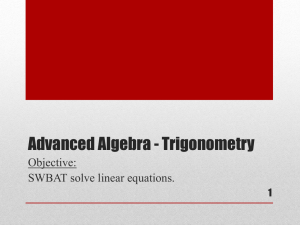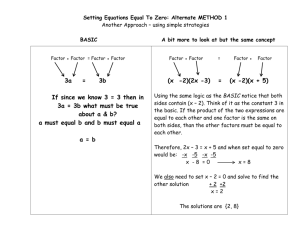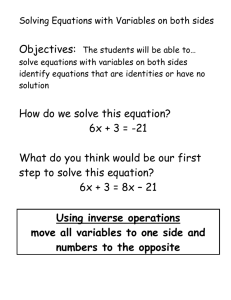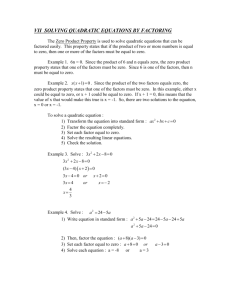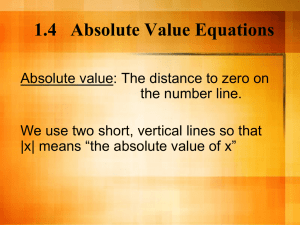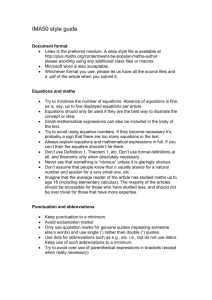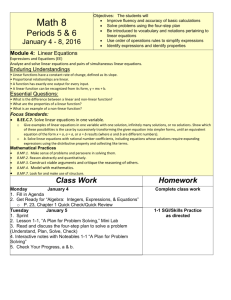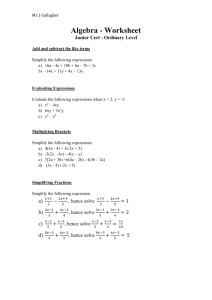Solutions for question nr. 4 (the 1st seminar)
advertisement
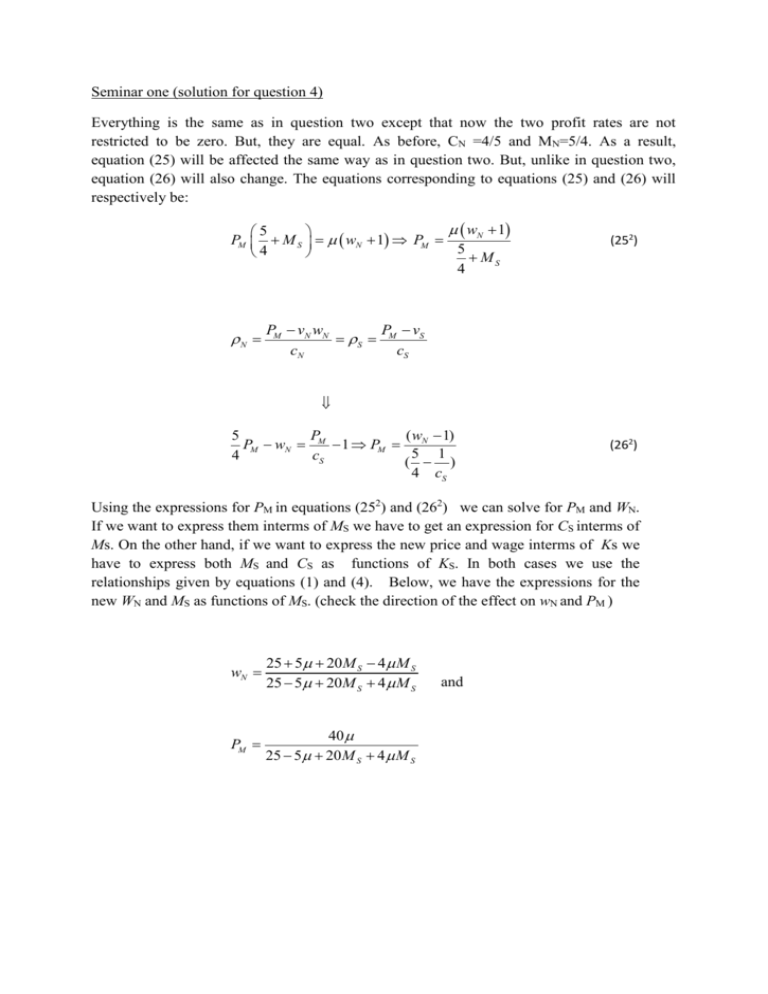
Seminar one (solution for question 4) Everything is the same as in question two except that now the two profit rates are not restricted to be zero. But, they are equal. As before, CN =4/5 and MN=5/4. As a result, equation (25) will be affected the same way as in question two. But, unlike in question two, equation (26) will also change. The equations corresponding to equations (25) and (26) will respectively be: wN 1 5 PM M S wN 1 PM 5 4 MS 4 N (252) PM vN wN P v S M S cN cS ( w 1) P 5 PM wN M 1 PM N 5 1 4 cS ( ) 4 cS (262) Using the expressions for PM in equations (252) and (262) we can solve for PM and WN. If we want to express them interms of MS we have to get an expression for CS interms of Ms. On the other hand, if we want to express the new price and wage interms of Ks we have to express both MS and CS as functions of KS. In both cases we use the relationships given by equations (1) and (4). Below, we have the expressions for the new WN and MS as functions of MS. (check the direction of the effect on wN and PM ) wN 25 5 20M S 4 M S 25 5 20M S 4 M S PM 40 25 5 20 M S 4 M S and




